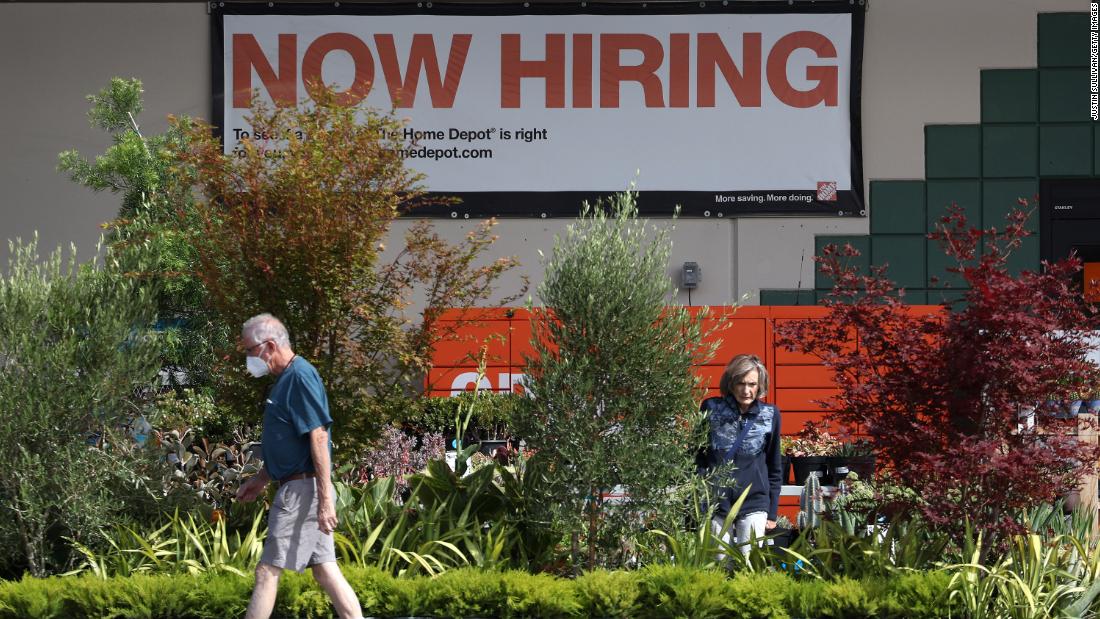
And in some ways that makes sense: Since 1948, every period of back-to-back quarters of negative growth coincided with a recession.
But the recession-is-already-here argument has been severely undermined since that GDP report came out. A series of events in the past 10 days suggest those recession calls are, at a minimum, premature.
Consider the following developments:
- The economy added more than half a million jobs in July alone.
- The unemployment rate dropped to 3.5%, tied for the lowest level since 1969.
- Inflation chilled out (relatively speaking) in July for both the consumers and producers.
- Gas prices tumbled below $4 a gallon for the first time since March.
- Consumer sentiment has bounced off record lows.
- The stock market notched its longest weekly winning streak since November.
Mark Zandi, chief economist at Moody’s Analytics, has only grown more confident that the US economic recovery is intact.
“This is not a recession. It’s not even in the same universe as a recession,” Zandi told CNN. “It’s just patently wrong to say it is.”
Of course, none of this means the economy is healthy. It isn’t. Inflation remains way too high.
And none of this means the economy is out of the woods. It isn’t.
Job market is still hot
The biggest issue in arguing that a recession has already begun is the fact that hiring ramped up — dramatically — in July. The United States added a staggering 528,000 jobs last month, returning payrolls to pre-Covid levels.
An economy that’s in recession doesn’t add half a million jobs in a single month.
“I don’t think anything in the data about where we are right now in the economy is consistent with what we typically think of as a recession,” Brian Deese, director of the White House National Economic Council, told CNN in a phone interview last week.
If anything, the job market is too hot. And that is a problem for the months ahead because it allows the Federal Reserve to aggressively raise interest rates without resulting in widespread damage to the labor market in its bid to slow the economy down.
The risk is that the Fed ends up slamming the brakes so hard that it slows the economy right into a recession.
Inflation is cooling off, finally
There is a growing sense that perhaps the worst is over on the inflation front.
Beyond gasoline, diesel and jet fuel prices are also falling, easing inflationary pressure on the rest of the economy.
The energy cooldown lowered inflation metrics in July and should do the same, if not more so, in August.
The better-than-expected inflation reports reflect not just lower energy prices but easing stress in supply chains scrambled by Covid-19.
What a recession would feel like
In some ways, the recession debate is semantics.
However, for many, an actual recession would be far more painful than today’s environment.
A recession would likely involve the loss of not just hundreds of thousands but millions of jobs. Unable to make their mortgage payments, families would face foreclosure on their homes. And small, medium and large businesses would go under.
None of those things are happening in a significant way, at least not yet.
In all, recent economic data suggests that the potential recession may have been delayed, not canceled altogether.
While the risk of a recession over the next six to nine months appears to have gone down, Zandi said, the risk of one in the next 12 to 18 months has gone up.
“Recession odds are still uncomfortably high,” he said.
